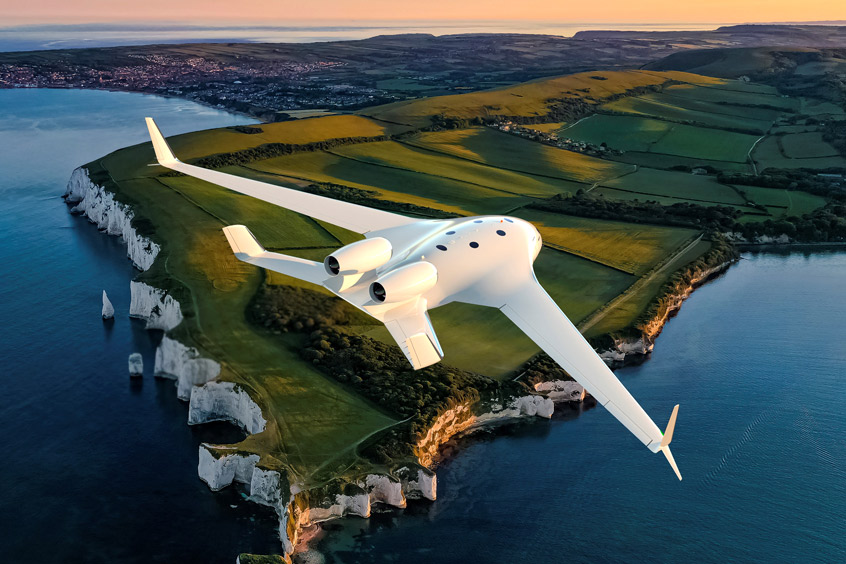 The monthly news publication for aviation professionals.
The monthly news publication for aviation professionals.

Bombardier has presented the progress made on its EcoJet research project, a research platform that aims to develop technologies with the goal of reducing aircraft emissions through a combination of advanced aerodynamics and propulsion enhancements. After several years of research, the organisation has successfully completed its first phase of testing with a small-scale model of a blended-wing-body aircraft, representing approximately seven per cent of a large business jet. Bombardier is now building on the significant knowledge acquired to engage in a second phase of testing with a model twice as large, and which completed its first flight last year to pave the way for this next test campaign.
“Bombardier has taken a leadership position in the industry's efforts to reduce its environmental footprint, and the EcoJet research project is paramount to developing the technologies that will bring us toward the goal of net zero emissions by 2050,” says Stephen McCullough, senior vice president of engineering and product development. “We are very pleased to see the highly engaging results yielded so far and to continue our trailblazing work as we kick off the next phase of this game-changing research project. The EcoJet research project has garnered a high level of interest across the industry, and we are looking forward to mobilising partners as we continue to define the future of business aviation.”
Bombardier's team noted highly positive results during the design optimisation loops and initial flight test campaign. Those include the deployment of a next-generation product lifecycle management (PLM) platform, the confirmation of a sixth-generation transonic wing modelling capability and the demonstration of a new aircraft control architecture.
This research and technology project aims to reduce aircraft emissions by up to 50 per cent through a combination of aerodynamic and propulsion enhancements. Renowned for its leading expertise and ingenuity, Bombardier created the EcoJet research project to develop and mature powerful technologies to leverage in future projects, as part of its firm commitment to a sustainable future for business aviation.
On top of its comprehensive EcoJet research project, Bombardier has taken several actions as part of its roadmap toward sustainable aviation. In the last three years, the company published Environmental Product Declarations (EPD) for its Challenger 3500, Global 5500, Global 6500 and Global 7500 aircraft. These extensive declarations are the result of years of scientific efforts and are meant to act as tools for the aviation industry to drive sustainable innovations across its activities spectrum. Bombardier is also using sustainable aviation fuel (SAF), at a 30 per cent blend, to cover the totality of its flight operations, utilising the Book and Claim system. The initiative will create a significant gain by reducing the annual greenhouse gas emissions associated with fuel used in Bombardier's flight operations by approximately 25 per cent.